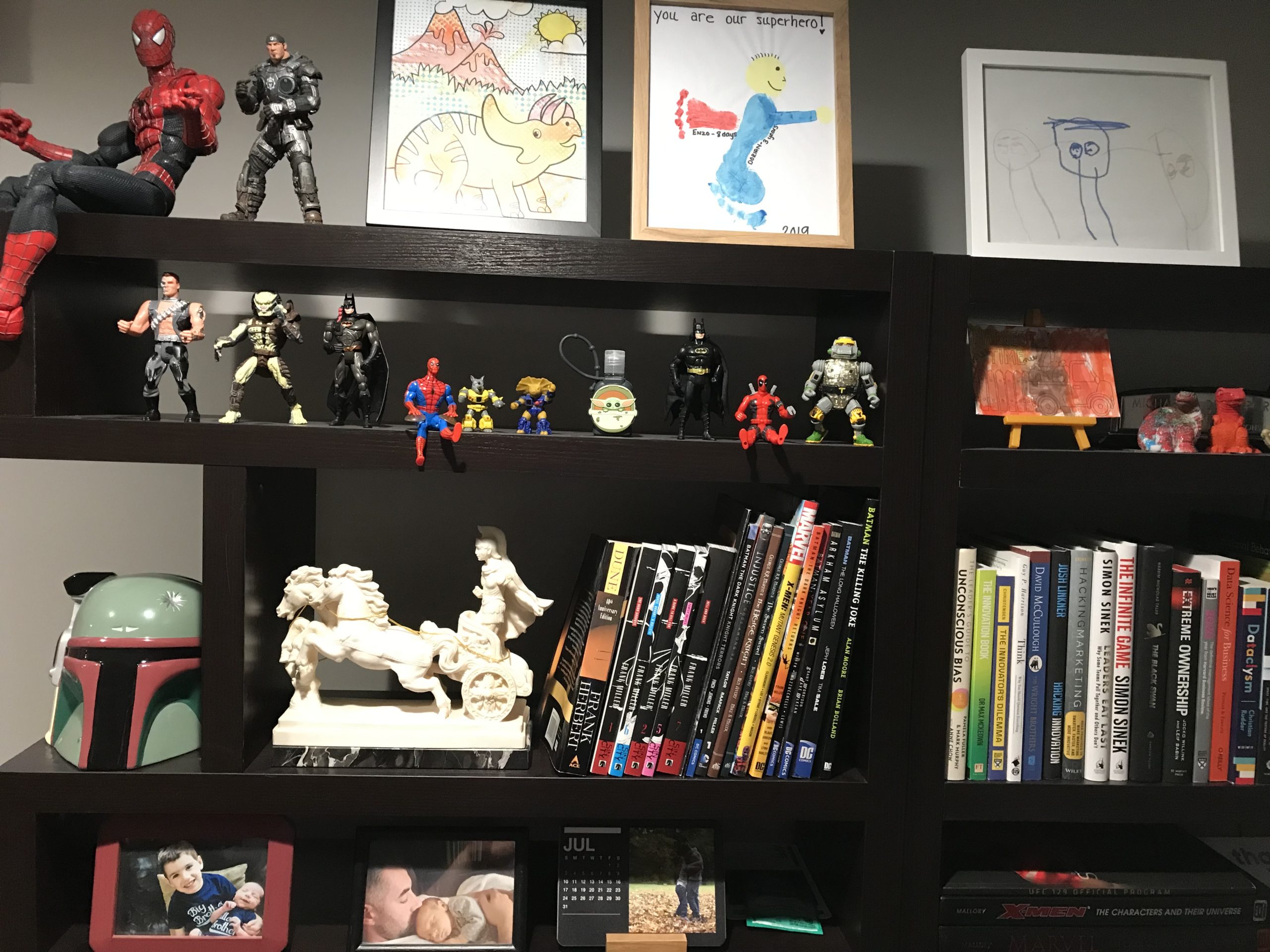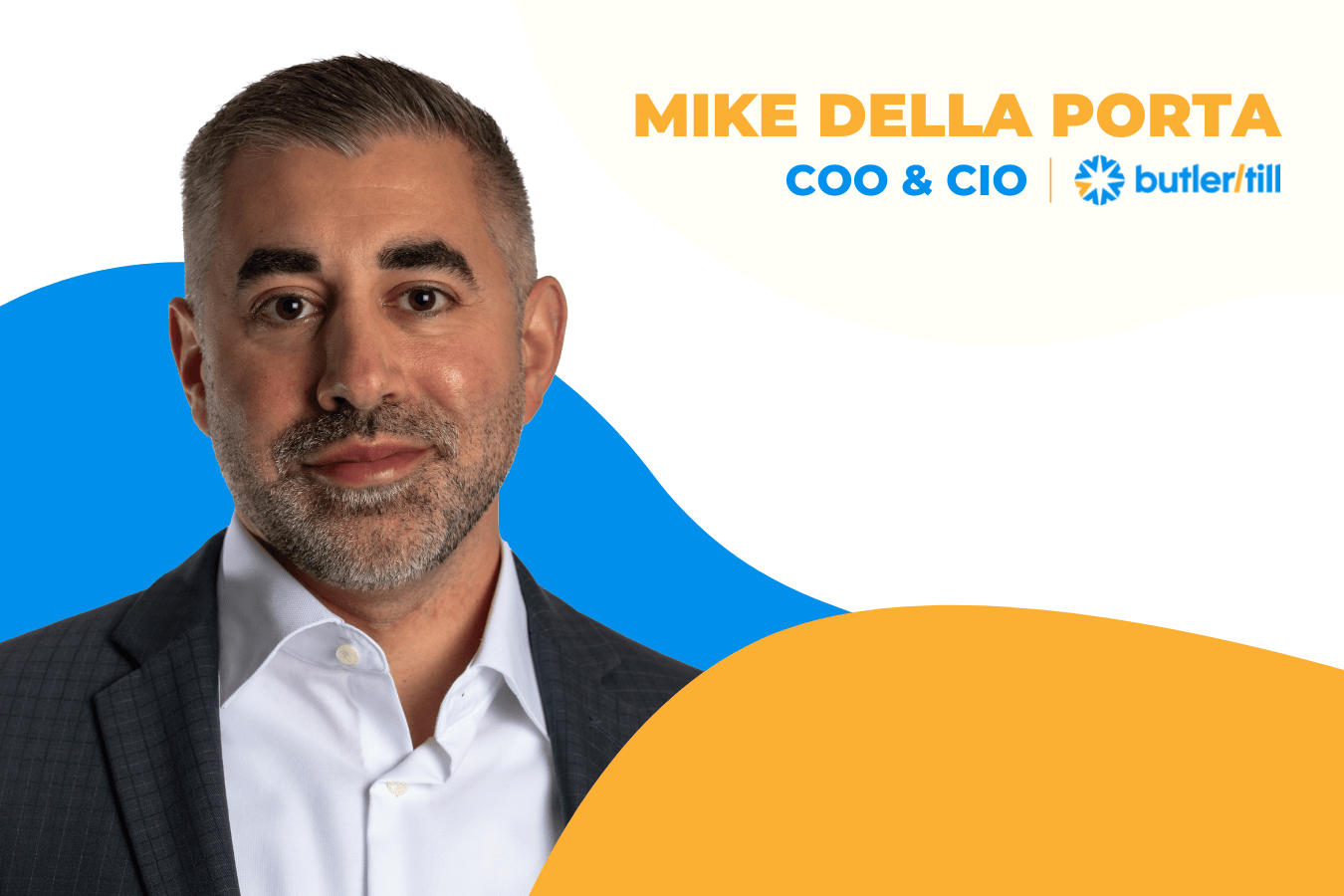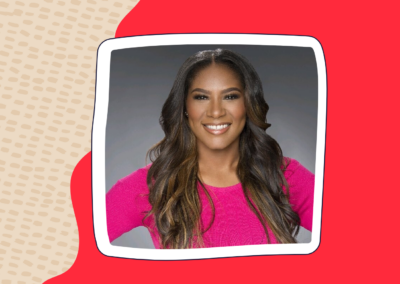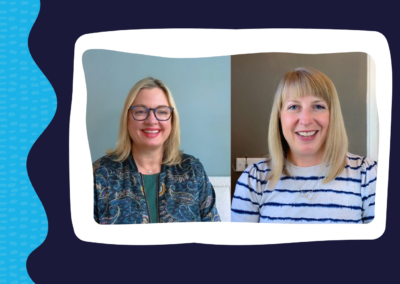Results of the 2022 Rosie Report led to the realization of one of the most important drivers of everything going forward in the world of work: The Great Disconnect. Boil it down to the idea that executive expectations are currently unaligned with talent expectations, in particular the desire for a remote or hybrid option, and you’ve got it.
Most execs are planning post-pandemic work return without employee input, yet are surprised when the talent they need pushes back. What are companies to do in light of these trends? Our discussion with Mike Della Porta, COO/CIO of Butler/Till offers some answers.
Since Butler/Till was founded in 1998, it’s been hyper-focused on agency culture, fostering and evolving it over time. How did that attention to culture factor into the pandemic and post-pandemic world? What feedback are you getting from employees and how are you addressing it?
Gratefully, we really haven’t experienced what other organizations are navigating through in terms of “The Great Disconnect.” Butler/Till is in a unique position as an employee-owned, women-owned B Corporation. Our culture has always been rooted in transparency, accountability, continuous improvement, and a people-first approach. We strive to create and nurture a sustainable and resilient business so that in times of uncertainty, Butler/Till can serve as a source of stability and consistency for our employee-owners, clients, and partners. It’s because of our people, values, and business practices that we continued to grow over the course of the pandemic, achieving record revenue, operating profit, and employee engagement in 2021.
Clear and consistent enterprise-wide communication from our President & CEO Kimberly Jones and leadership team was critical and continues to be. Live, written, and anonymous channels were all important to get a deep and honest understanding of the concerns our employee-owners had and how we could address them. We also committed to maximum flexibility to support our people and the unprecedented circumstance we all faced.
Fast-forward to today, our approach to communication and flexibility has remained constant. We trust our people as employee-owners to act in the best interest of our organization and our clients. We know that transparency and flexibility are two of the most important things our people need. Our philosophy is, if we take care of our people and help them reach their fullest potential, the rest will take care of itself.
Our data suggests many executives are ignoring these new needs, concerned with losing institutional knowledge, opportunities for spontaneous innovation and a new form of workplace inequality. Is that a mistake? Do you have any insight?
It’s a mistake to ignore what has changed over the last two years and the expectations that employees have as a result. As COO and CIO, I lead our technology and digital transformation strategies. From an operations and technology perspective, we’re committed to enabling a hybrid workforce so that our employees can do their best work and have a best-in-class experience, regardless of where they are located. That flexibility is paramount to attracting and retaining the best talent.
From a culture-building perspective, I acknowledge the challenges and understand the viewpoint that collaboration, innovation, learning and development, and mentoring take on a different dynamic when done in person versus remote.
With that said, I believe the pandemic has changed workplace expectations forever. Leaders need to evolve the more traditional ways of work and bring employees into the decision-making process. Being intentional about cultivating company culture is the key to strengthening it—and making remote environments thrive. There is so much innovation in the collaboration space. We’re experimenting with these tools and challenging conventional thinking to figure out what works for us. I personally love technology and I’d recommend that leaders give themselves the time and grace to explore and keep an open mind.
It might be daunting for company leaders to open themselves up to addressing the Great Disconnect. It’s challenging not only the status quo within work but also where work is done. Can you talk about the silver lining to work-from-home options? How has it allowed Butler/Till, as an employer, to see employees as whole people?
Carla Harris (Senior Client Advisor at Morgan Stanley) gave an amazing keynote at a Gartner Conference a few years ago where she said leaders need to have the courage to “call a thing a thing.” That really stuck with me.
At Butler/Till, we don’t shy away from the tough or sensitive conversations. As a leadership team, we’re very intentional about modeling the norms and behaviors we want all our employee-owners to practice and experience. We share a lot about the business and ourselves as people. We all have lives outside of work and the pandemic really brought a new meaning and empathy on that point.
My favorite part about working from home became seeing employees’ family members pop in to say “Hi” during video calls. I have two little boys (age 3 and 6) myself and I never felt any pressure or oddness if they came over to give me a hug during a Zoom meeting. This was important to me, and something I wanted to model for the organization to represent it was not only OK, but encouraged and a fun, organic way to learn more about our colleagues.
As you’ve said, when an employee’s video screen includes scenes from home life, it’s harder to ignore the lifestyle needs of that employee. What sort of mindset do you suggest anyone doing the work needs to have? What should employees keep in mind?
I think the biggest thing, to the extent it’s possible, is for employees to have a dedicated space at home to do work. Whether it’s a home office, the kitchen table, a set corner, I think some consistency on that front is helpful for employees and employers. As our lives have become more work-life integrated than ever, this helps delineate the two.
Beyond that, just making sure the space is functional for the type of work and to consider what is visible to whomever you’re working with. Make sure the backdrop is appropriate and in line with the organizational culture, expectations, level of professionalism, etc.
For me, I set up a home office space in our basement. It’s quiet and I can set up all my “stuff” for work. I set up bookshelves behind me as a sort of backdrop for my video calls and decorated with books, photos, and some fun things like superhero action-figures and a Boba Fett cookie jar. What’s been kind of cool is how those items have served as icebreakers during calls. Someone I just met over Zoom will see the cookie jar or a picture of my family and we can connect on that level right away.

Mike’s Work Space Shelf
Where do you think the Great Disconnect will lead us, especially in marketing and advertising? Is that different from where you hope it will lead us?
The pandemic has changed the social contract between employees and employers. In marketing and advertising specifically, I believe these changes are for the better. It has dramatically expanded the labor market and removed any notion that geography is a barrier to reaching diverse, talented professionals and that we can do amazing things together in a hybrid setting. This is fueling innovation and changing expectations around how work is done. My hope is that organizations will choose to embrace this mindset and strive to create a win-win for employers and employees. I am optimistic this will be the case.



